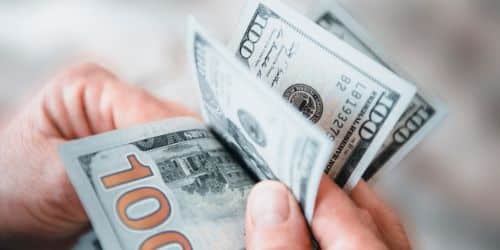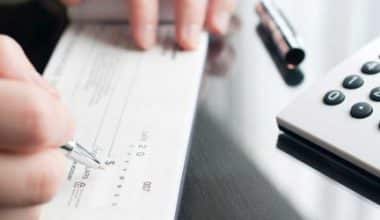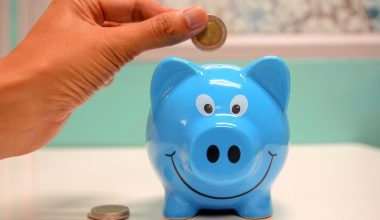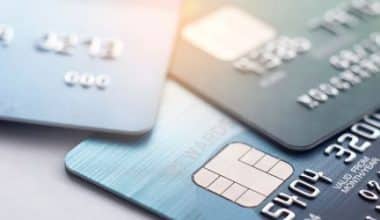A new way of life with less stress and more opportunity to achieve your goals is made possible by paying off your debt. Zeroing out consumer debt also helps shield you from financial shocks like lost wages during uncertain economic times.
You may opt to go all-in and make significant sacrifices to get there more quickly, or you may elect to become debt-free gradually over time. Whether it’s purchasing a home, taking a guilt-free vacation, or simply living without balances hanging over your head, visualizing the end result will help you get started.
Start by implementing the simple tips on this page to lead a debt-free life.
What is a Debt-free Life?
Having no outstanding obligations in your name signifies that you are living debt-free. That covers everything, including your mortgage and credit cards.
There are numerous benefits to being debt-free. Imagine living a life with only a few bills in addition to the necessities like housing and food. You could travel more or donate more money to charity, and your level of stress would probably reduce. Additionally, if you had a good strategy in place, you would have money left over to invest in the future of your family and save for retirement.
However, for the majority of individuals, debt freedom does not come easily. It takes a lot of sacrifices to achieve that level of financial freedom, both in terms of paying off existing debt and staying away from taking on new debt. Having the means to support such a lifestyle is also necessary.
What is Required to Lead a Debt-Free Life?
#1. Savings and cash flow as backups
In order to become and stay debt-free, you typically need to be in a stable financial situation. If you have money left over after paying your bills, you can save it for expenses like emergencies and other charges that would otherwise force you to incur additional debt in addition to getting ahead on your debt payments. For instance, you can avoid paying high-interest rates and having to make additional payments on that debt until it is repaid if you have the financial capacity to cover an emergency vet visit without relying on credit card debt.
A debt-free life might not be feasible for you if you’re having trouble making the minimum payments on your debt. That’s fine too. If saving money or making additional debt payments is a long-term objective for you, you might start by working to increase your income. A debt-free lifestyle may even be defined as having no debt other than your mortgage. That might be a more doable objective.
#2. Keeping track of each dollar spent and gained
People who practice debt-free life develop good money management skills. They adhere to a monthly budget and keep track of the money coming in and going out of their bank accounts rather than just spending money whenever a need or want arises. Being debt-free and staying that way can be a reality with the help of two effective tools: budgeting and tracking.
putting finances first and forgoing comforts
Debt-free individuals have distinct priorities when it comes to how they spend their money. Over time, they become quick to distinguish between necessities and wants. When making both little and large purchases, they avoid making impulsive decisions and take the long term into account.
But living debt-free also necessitates short-term deprivation of some comforts. For instance, you might decide to live in a paid-off RV while you save money in order to avoid getting a mortgage. Not everyone would find that to be their ideal living environment.
#3. Self-reflection
The two objectives of becoming debt-free and remaining debt-free are distinct. People who live a debt-free life aren’t scared to confront their own shortcomings. It’s not unusual for someone to live debt-free for a few months before turning to credit card debt or getting a home equity loan. A cyclical return to debt may be a sign that you have the habit of making payments but lack the self-reflection necessary to keep you out of debt.
Create a dependable emergency reserve and sinking fund first so you won’t need to use credit when times are tough. You might also need to evaluate how your personal emotions impact your expenditures. Do you find it difficult to put off making a large purchase because you believe you deserve it? Insight into what it will take to achieve a debt-free living can be gained by analyzing what occurs just before that cycle repeats.
#4. Create a reward system
As you take on all the obstacles that come with living a debt-free lifestyle, don’t be afraid to treat yourself. Small rewards along the route will lift your mood and add encouragement to the journey.
It can be challenging to keep the change going. It’s crucial to treat yourself so debt freedom doesn’t feel like a burden, whether you do this by cooking yourself something special or taking a staycation when you reach a major milestone.
Characteristics of Those Who Live Debt-Free
#1. They are anticultural
These people are aware that taking on debt won’t be a winning strategy. According to society, you need a credit card to thrive, student loans are a requirement for attending college, and you’ll constantly owe money on your automobile. These are outright lies.
People who are living debt-free do not adhere to these conventions. Their daily existence does not require credit cards. Their budgets are not significantly affected by car payments. They quickly get rid of their debt, treating it like the week-old meatloaf they discovered in the back of their refrigerator. Debt is typical. So be strange!
#2. They exercise restraint.
Adults establish plans and adhere to them, claims Dave Ramsey. Kids act according to their feelings. A person with a strong desire to pay off their debt can resist the urge to make an impulsive purchase and walk right past the shoe aisle with the huge discount or the flat-screen TV aisle.
They don’t buy things just because they desire them or because they’re on sale. They are intelligent enough to understand that making purchases won’t solve all of their concerns or ultimately make them feel better.
Debt-free individuals avoid making purchases unless they have cash on hand. They are prepared to patiently wait, work, and save.
#3. They exude confidence
Someone who is confident in their financial strategy doesn’t care what other people think of them. They don’t mind driving an outdated vehicle because there are no payments to be made. They don’t have to spend a lot of money on vacations in order to share beautiful pictures on social media. In addition to brand names, they also look at price tags. Why? They no longer strive to keep up with the Joneses who live next door.
And what’s this? This kind of unwavering discipline frees up more money to pay down their debts. They get more and more confident as they pay off debts.
#4. They don’t hesitate to refuse.
If you’re continuously saying yes to every social invitation that comes your way, it’s difficult to maintain a debt-free life. It’s crucial to retain the word “no” in your vocabulary, whether it’s for a shopping trip, vacation, dining out with friends, or simply spending money on a whim.
#5. They make objectives.
Simple enough, right? Living debt-free is a goal, so those who desire to achieve it keep that aim in mind. They establish written, personally owned, time-sensitive, explicit, quantifiable goals for you. They decide what they want to do and then create a plan to make it happen.
#6. They have gazelle intensity.
You undoubtedly recall Dave talking about gazelle intensity if you have taken Financial Peace University. It occurs when you become so depressed about your debt that you sprint away from it (like a gazelle). This indicates that they are trying to eke out every last dollar from their budget. They are using coupons, searching for deals everywhere they go, and even working a side job. Everyone has joined.
#7. They are unconcerned with things.
People who are materialistic place too much value on “stuff.” They take on an absurd amount of debt to pay for holidays, expensive automobiles, and even large homes.
But those who are motivated to pay off their debt are aware that happiness cannot be purchased with money. With what they have, they are happy.
#8. They’re prepared to give up something.
A person may have to refrain from spending money on items like eating out, weekly movie dates, and the premium television package while working toward debt freedom. But bear in mind that spending reductions are just temporary. The budget will have more flexibility for that dinner and movie outings once the debt is paid off.
#9. They are incomparable.
The lifestyles of those who are debt-free are not compared to those nearby or on social media. They are aware that they are on their own road, pursuing their own objectives and aspirations. They are happier and more happy with their lives as a result of not comparing themselves to others.
#10. They freely give.
People who are debt-free are aware of their freedom to live and offer. They are aware that they may have more fun with money the more they keep their hands open. It’s always more enjoyable to donate to a greater cause rather than save that money for themselves, whether they are supporting family, friends, church, or a mission they believe in. According to Rachel Cruze, “Giving is the most fun you’ll ever have with money.” Test it out for yourself!
Five Tips for Leading a Debt-free Life
#1. Establish a budget.
Especially if you’re on a debt-free road, it’s essential to make a documented plan to assist you prioritize how you will spend your income. It’s not necessary to have a detailed budget. To complete the task, you can use a square piece of paper, an elaborate spreadsheet, or even a budgeting app.
#2. Construct a positive cash flow.
You can achieve this aim in one of two ways: either by increasing your income or decreasing your expenses. You have a greater probability of having “positive cash flow” if you do this action. As you develop a debt-free lifestyle, having a surplus each month gives you more options and money to work with.
#3. Keep an eye on your credit.
You may be able to pay off your debt more quickly if you have an excellent credit score. If your credit is excellent, you could be able to consolidate your debt at a lower interest rate, which would allow you to put more of your payments toward the principal sum and less toward interest.
#4. Pay off additional debt.
Ashburn suggests making the most of any extra money you have once it has been freed up through spending reductions or new revenue. Paying off debt is one of the best uses of your additional money.
#5. Establish reserve money.
Increasing your savings when you’re trying to reduce your debt could seem counterproductive. When unforeseen needs arise, having an emergency fund might help you avoid going into debt. In addition to paying off your debt as quickly as you can, reaching your debt-free objective also requires future preparation.
Summary
Personal finance can sometimes be about crunching numbers to determine what is best for your financial objectives, but that oversimplification ignores the fact that personal finance is deeply personal.
As long as you’re managing your emergency fund, saving for retirement, and achieving other personal financial goals, there is nothing wrong with not making an effort to pay down low-interest debt.
The numbers, though, just don’t matter to some people who discover a new sense of calm in being debt-free. If you want to live debt-free, taking the following steps can help you achieve your goal quickly: figuring out how much you owe, selecting a payoff strategy, making and sticking to a budget, and developing a plan to stay debt-free once you’ve reached it.
Related Articles
- HOW MUCH DO YOU NEED TO HAVE FINANCIAL FREEDOM
- Financial Freedom: A Detailed Guide to Help You Achieve it in 2023 (+ quick tips)
- BEST NO ANNUAL FEE CREDIT CARDS IN 2023
- BEST FIRST CREDIT CARDS 2023
- HOW TO PAY OFF CREDIT CARD DEBT 2023 (Updated)






